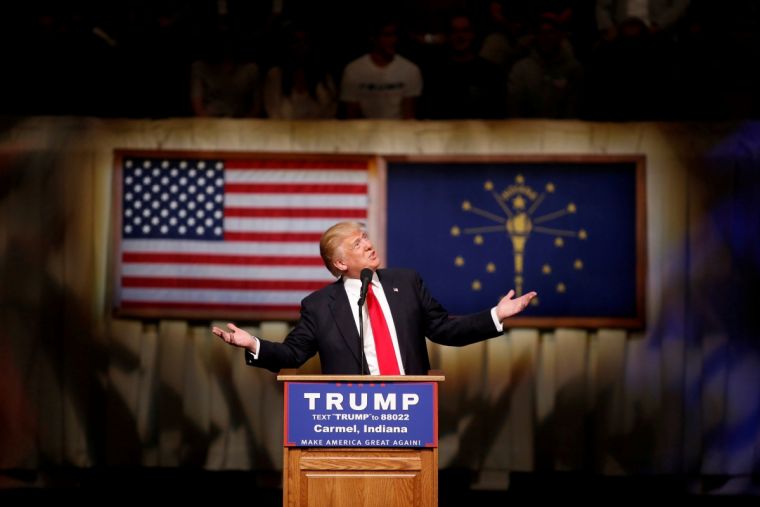Donald Trump's new evangelical advisers reveal political calculations

It's hard for Brits to understand the relationship between politics and religion in the US. On this side of the Atlantic, faith is generally considered to be a liability when it comes to the ballot box. In America, meanwhile, every candidate for president will spend time trying to woo church leaders and display their Christian credentials.
So it is for Republican candidate Donald Trump, who has been hard at work this week trying to improve his standing among evangelical Christians in the US. He announced a list of conservative Christians who will advise him, including televangelists Paula White, Kenneth Copeland and Jerry Falwell Jr, the Liberty University president who is the son of the famous founder of the 'Moral Majority'.
The group has been described as the "old guard religious right" from the 90s, and it certainly reflects the standard conservative branch of the US church – a branch whose power has waned in recent years.
The 'Evangelical executive advisory board' will offer counsel on "those issues important to Evangelicals and other people of faith in America". It includes former congresswoman Michele Bachmann, and president of the National Hispanic Christian Leadership Coalition Samuel Rodriguez, Jr. The announcement preceded a meeting on Tuesday with hundreds of evangelicals, where Trump apparently received a "standing ovation".
Unusually for a Republican candidate, Trump has got quite a bit of work to do, as many Christians strongly oppose his candidacy. This is partly due to his inflammatory rhetoric regarding groups such as Muslims and Mexicans, but more often, it's for his sometimes liberal views on moral issues and his previous support of abortion rights. Then there are his claims to have a "great relationship with God" while at the same time declaring he doesn't need forgiveness. Last year at the Values Voter Summit, Trump was booed. Earlier this month, 49 per cent of evangelicals said that they have a negative view of him.
This month has been an especially bad one for the property tycoon, particularly following remarks deemed racist towards the Hispanic judge Gonzalo Curiel, who happens to be involved in a civil case involving Trump University.
However Trump does appear to have stalwart support from certain parts of the Christian community. Falwell Jr recently called Trump a "breath of fresh air" after he made noises about protecting Christianity, and added: "In my opinion, Mr. Trump lives a life of loving and helping others... as Jesus taught in the New Testament." Other members, such as White and Ralph Reed of the Faith & Freedom Coalition, have openly supported Trump.
In an interview with CBN, White said she has been friends with Trump for the past 15 years, after he called her to praise her preaching. (White is a well-known 'prosperity preacher'). She said she has had "private times of prayer with him" and she defended him from scepticism about his professions of faith.
The members of the board are not all Trump supporters, by any means. James Dobson, the founder of Focus on the Family, and Richard Land, have been openly critical. Land wrote an article entitled "Donald Trump is a scam." Dobson's comments last December betray the dilemma the religious right faces. "I am very wary of Donald Trump," he said, citing Trump's business in gambling. "I would never vote for a king pin within that enterprise. Trump's tendency to shoot from the hip and attack those with whom he disagrees would be an embarrassment to the nation if he should become our Chief Executive. I don't really believe Trump is a conservative. Finally, I would never under any circumstance vote for Hillary Clinton."
So the choices Trump made were probably political, knowing that he doesn't have great credentials when it comes to the more conservative voters. Some of the members of the board may have accepted, believing that they were being given an opening to influence the presidential candidate for the better. But for many Christians on social media, their membership gives evangelical endorsement to someone who really isn't on their side.
For Trump there may be other more tactical considerations at play. The Atlantic notes: "One-third of the board members run churches or organizations that have campuses in Texas or California. Perhaps the Trump campaign is looking ahead to general-election math."
Christians have been given a key role in the next US presidential election. But will they use it wisely?











